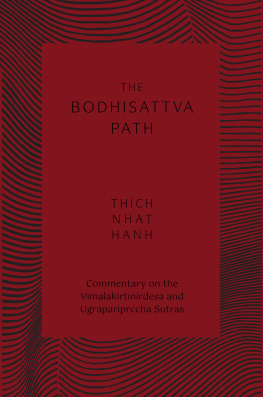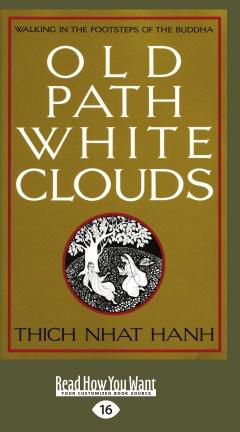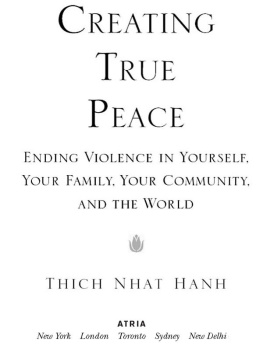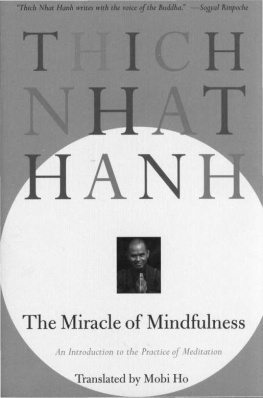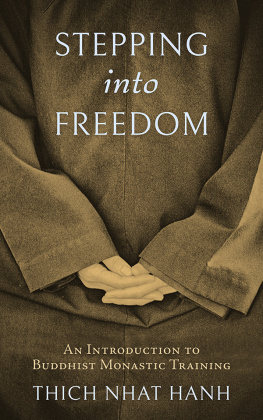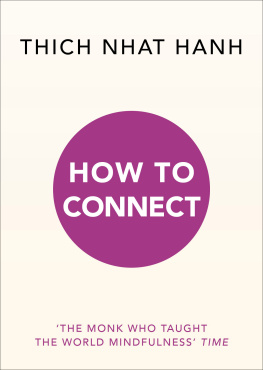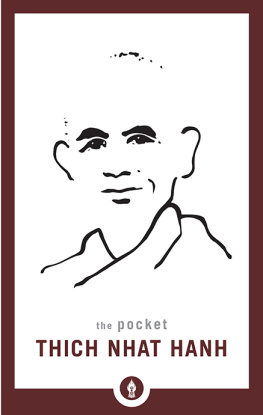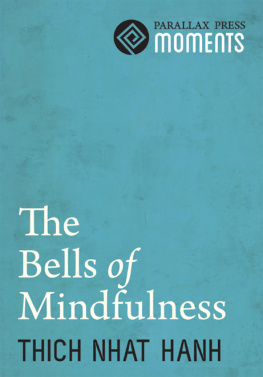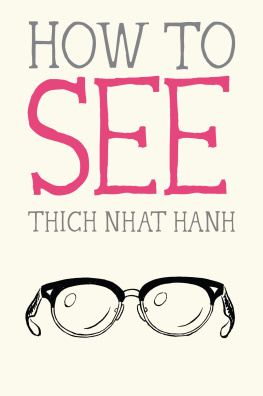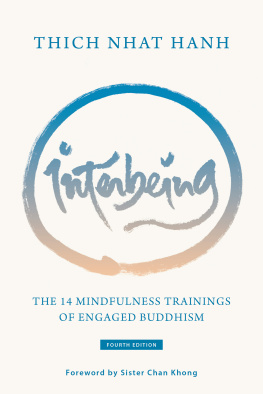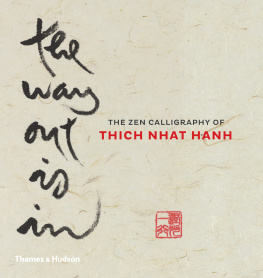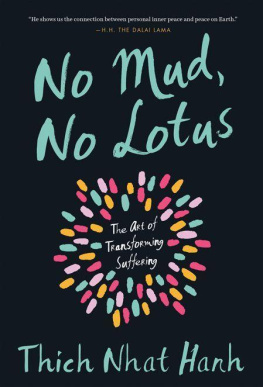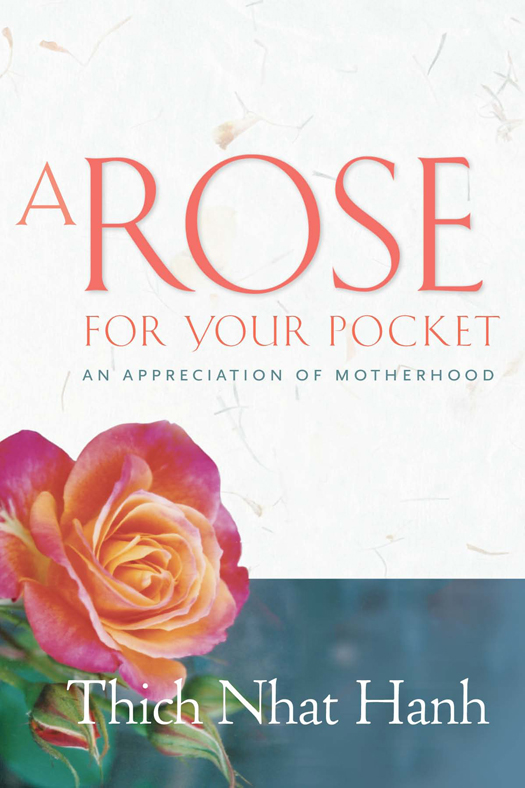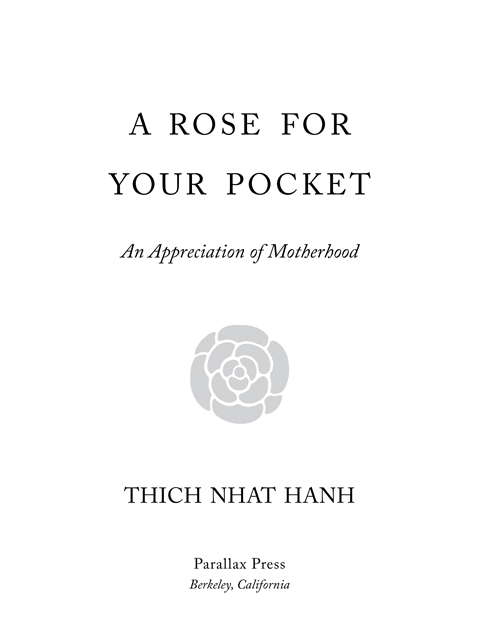P.O. Box 7355
of Unified Buddhist Church, Inc.
2008 by Unified Buddhist Church.
All rights reserved.
Cover design by Gopa & Ted2, Inc.
Text design by Jess Morphew.
Cover photograph by Helen Tadeo.
Nhat Hanh, Thich.
A rose for your pocket : an appreciation of motherhood / Thich Nhat Hanh.
p. cm.
1. MotherhoodReligious aspectsBuddhism. 2. Mother and childReligious aspectsBuddhism. 3. Buddhism. I. Title.
INTRODUCTION
Betsy Rose
I first met Thich Nhat Hanh in 1987 at a retreat for artists in Ojai, California. From that first meeting, his teachings have permeated my heart and mind. When I first found Thay, as his students call him, I was in the midst of wrenching infertility struggles. His teachings on impermanence, nonattachment, suffering, and the causes of suffering, helped me to frame my experience in a different way, and hold the pain, effort, and loss a bit more lightly.
I gave birth to my son, Matt, in 1992. My practice was still very new and I was eager to be a perfect spiritual mother to my long-awaited child. Surely the equanimity, patience, and understanding that I developed on the meditation cushion would enable me to create the family of my dreams.
This confidence quickly disappeared. At eighteen months, Matt looked at me coolly, picked up my favorite teacup and smashed it on the sidewalk. Anger collided with grief over the broken cup, but more over my broken dreams for an easy, cooperative child. In preschool, his aggression and high activity level branded him the school hitter. As a Buddhist mom, I felt utter horror and shame at this public unmasking of my spiritual inadequacy as a parent. Throughout elementary school, I spent many sleepless hours contemplating the future, with recurring scenarios involving police, juvenile hall, and worse.
I have to say honestly that Thich Nhat Hanhs teachings did not make me the parent of a model Buddha-baby, nor was I constantly imbued with wise speech, equanimity, and mindfulness. Perhaps some readers will recognize themselves in this. Yet the loving and gentle wisdom contained in these pages, and in Thich Nhat Hanhs many other writings, have offered me something even better: acceptance of my, and my childs, humanity, compassion for both of our suffering, and a new way of seeing the inevitable disappointments, seeming failures, and sense of inadequacy that is our common lot as parents.
Thay is not only a poet, teacher, and peacemaker, but a gardener. His teachings on growing lettuce remind me that when a plant grows poorly, one does not scold the lettuce (Bad lettuce! You could do better if you tried!), but rather looks at the soil, the nutrients, the context that is feeding that lettuce, and adjusts what is lacking or toxic. This wisdom inspired me to change my childs school situation several times. It helped me look at what tensions and unexpressed negative feelings were present at home as clues to why he seemed inexplicably difficult. It increased my understanding of the causes and conditions that create all of our behaviors and moods. All this new soil did indeed yield a stronger, happier child.
Simply remembering to breathe, and to send a loving thought to my own heart in times of stress and anger, has prevented many a heated incident that I would have later regretted. Remembering the impermanence of his childhood, of the moments of unhappiness, and of the moments of joy as well, has created more patience for the hard times and less clinging to the good times.
And, as Thay beautifully expresses in this book, my own mother has become more real and present to me as I stumble along this path of mothering, facing the truth of my own failures, joys, and heartaches. My mother raised five children in the fifties and sixties, before the feminist era, before society had any interest in or opportunity for her many other gifts besides mothering. As a young feminist, I judged her for her lack of assertiveness, her acceptance of a second place position in the marital structure. It is only as I live out my mothering years that I recognize her humor, stamina, enormous patience, and sly rebellions, too subtle to be noticed and squashed by the powers that be. My mother, too, grew in the soil given to her, with the heritage of her parents and ancestors. This awareness eases my tendency toward judgment and allows the beginning of true love and appreciation.
As Matt has grown through middle childhood and into his teen years, he has revealed himself to be a kind, deep, sensitive, and thoughtful human being. He is generous, quick to respond to injustice, and a loyal friend. Without taking direct credit for the mystery of how his, or my, Buddha nature emerges, I do believe that the seeds of kindness and peace and truth that we plant and water in our children benefit them and all beings.
Enjoy this little book of wisdom! It blossoms with sweetness, truth, insight, and clarity about the beautiful and complex relationships we live out in family life. May we all know peace and bring peace to those we love and to our world.
ONE
A Poem for Your Parents
Mother and father are called
Brahma, early teachers,
and worthy of adoration
being compassionate towards
their family of children.
Therefore, the wise should pay
them due homage and honor,
provide them with food and drink,
with clothing and bedding,
anoint and bathe them
and wash their feet.
When he performs such services
for his mother and father,
that wise person is praised
here and now, and after death
he rejoices in heaven.
Buddha, Itivuttaka 106
TWO
The Childs Palace
D o you remember anything from your stay in your mothers womb? All of us spent about nine months there. Thats quite a long time. I believe that all of us had a chance to smile during that time. But who were we smiling at? When were happy, theres a natural tendency to smile. I have seen people, especially children, smiling during their sleep.
No matter how hard our time is with our mothers once we are born, or whether or not they are the ones that raise us, for most of us, our time in our mothers wombs was wonderful. We didnt have to worry about food or drink. We were protected from heat and cold. We didnt have to do homework or housework. Protected in our mothers wombs, we felt quite safe. We didnt have to worry about anything. Its wonderful to have no worry at all.


